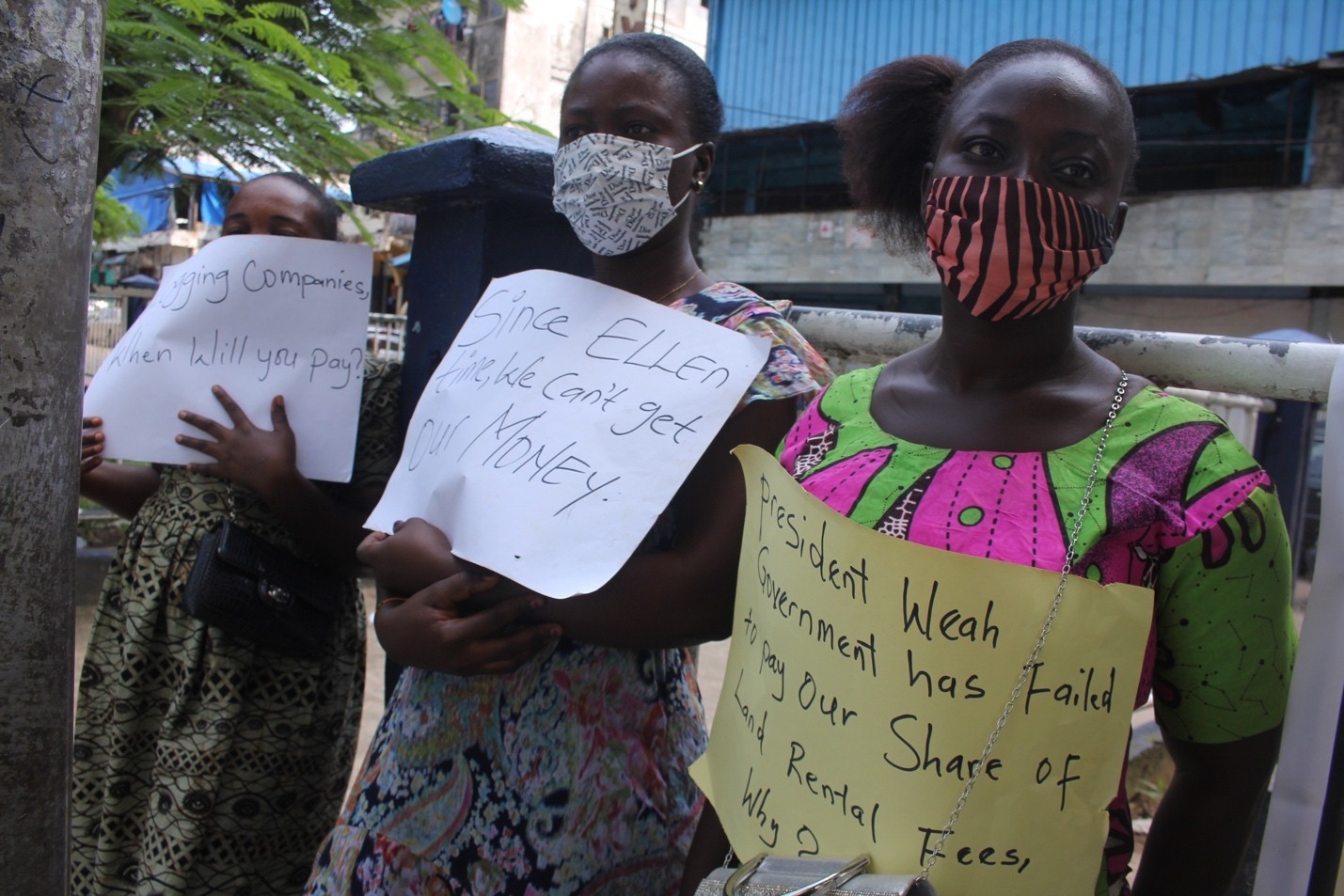Banner Image: women from logging-affected communities protest before the Ministry of Finance in Monrovia. The DayLight/Harry Browne
By William Q. Harmon
MONROVIA – The Foundation for Community Initiatives (FCI)—which advocates for women’s land rights—has expressed displeasure over the Liberian government’s failure to pay communities their legal share of land rental fees it received from logging companies.
The government owes communities affected by large-scale logging concessions more than US$5.5 million, according to Forest Trends in a report last year, covering logging-related payments between 2007 and 2019. That report said the government has not paid the fees since 2017.
“We want to join our voices to the [National Union of Community Forest Development Committee] in demanding the funds are paid now,” Loretta Aletha Pope Kai, FCI’s Executive Director, said in a statement on Thursday. “The government cannot continue to ignore the plight of its own people.
“Please pay the people their money.”
The union, which staged the protest early on Tuesday at the Ministry of Finance and Development Planning, hung the sit-in it had planned for a week following a discussion with the Comptroller and Accountant General of Liberia Janga Kowo. Kowo promised to get back the communities within a week.
The delayed payments are a violation of the 2006 National Forestry Reform Law of Liberia, which calls for the government to pay 30 percent of all logging-related land rental fees it receives to rural towns and villages, which host the forests from which the timbers are harvested.
It also breaches Liberia’s Voluntary Partnership Agreement with the European Union (EU), which mandates the west African country to harvest its logs in a sustainable manner. It also contravenes the Pro-Poor Agenda for Prosperity and Development (PAPD), mainly its pillars on economic empowerment and power to the people.
“This is a reversal of the gains we have made in the forestry sector since the end of the war,” the statement said in reference to the country’s breakaway from a civil war era where forest resources fueled the killing of an estimated 250,000 people. “We are drifting away from the lessons we learned during our civil war from denying local communities benefits of forest resources.”
Women’s rights
Mrs. Kai said the communities’ land rental fee crisis will have an impact on women’s participation in the upcoming elections for new corps of officers on local forestry governance structures, known across the forestry sector as community forestry development committee (CFDC). Out of 23 of those bodies, only one woman occupies a chairperson position, Ruth Gibson of Grand Gedeh County.
“It has the propensity to cause apathy among women who want to take up leadership responsibilities on these governance bodies,” the statement said. “Already facing diehard, decade-long patriarchy, gender stereotype and societal marginalization, the government protracted indebtedness to communities will only exacerbate the challenges women face in terms of land rights and equal participation in forest governance across the country.”
The statement also said the government’s indebtedness to the communities will compound poverty in the rural areas.
“This further means, women in those communities will not have access to paved farm-to-market roads, clinics, schools for their children and other things logging money should provide for them.”





Facebook Comments